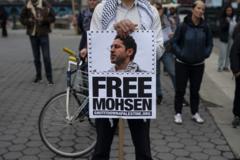Paul Stephenson, renowned for his leadership in the British civil rights movement, died on November 2 at the age of 87 due to complications from Parkinson’s disease and dementia. His activism was pivotal in challenging institutional racism in the UK during a formative period for civil rights.
Paul Stephenson: A Pillar of Britain's Civil Rights Movement

Paul Stephenson: A Pillar of Britain's Civil Rights Movement
Paul Stephenson, an iconic figure in the fight against racial discrimination in the UK, passed away at 87. His actions in the 1960s inspired legislative change.
Stephenson gained prominence in 1963 when he led a boycott of the Bristol Omnibus Company, resulting in increased awareness and legislative action, ultimately contributing to the Race Relations Act of 1965. This historic boycott coincided with milestones in the U.S. civil rights movement, such as Dr. Martin Luther King Jr.'s "I Have a Dream" speech. Drawing inspiration from figures like Rosa Parks, Stephenson staged a significant one-man sit-in at a local pub after being denied service. His actions, met with police resistance and media coverage, galvanized public opinion.
Despite being overshadowed by the more publicized American civil rights efforts, Stephenson's endeavors were critical in shaping a path for racial equality in Britain. His legacy serves as a reminder of the continued fight against discrimination and the importance of standing up for civil rights. The impact of his work lives on in the ongoing discourse surrounding equality and justice in society today.
Despite being overshadowed by the more publicized American civil rights efforts, Stephenson's endeavors were critical in shaping a path for racial equality in Britain. His legacy serves as a reminder of the continued fight against discrimination and the importance of standing up for civil rights. The impact of his work lives on in the ongoing discourse surrounding equality and justice in society today.






















